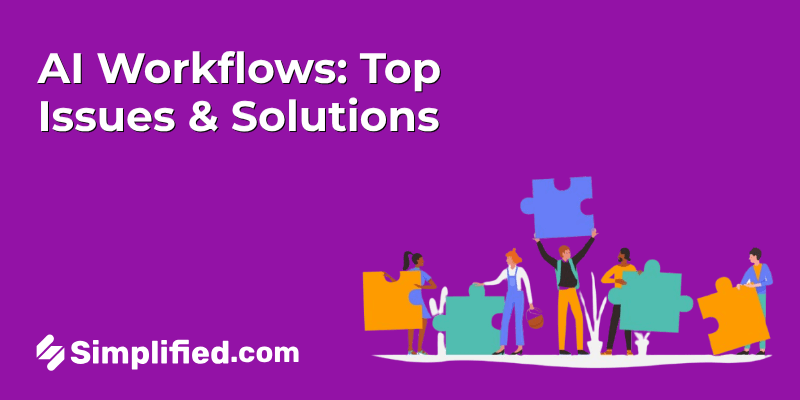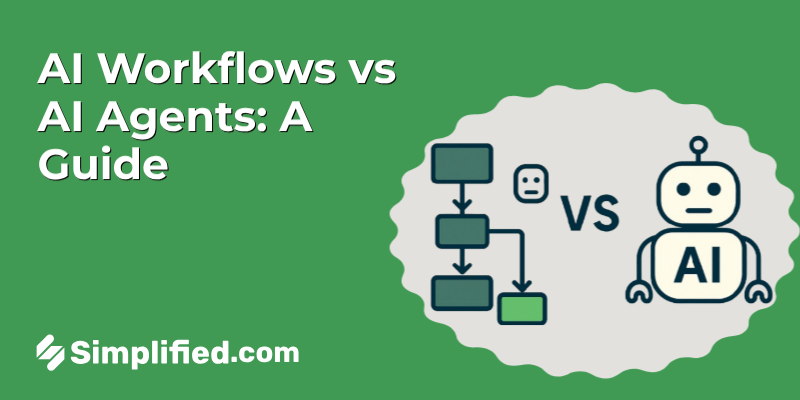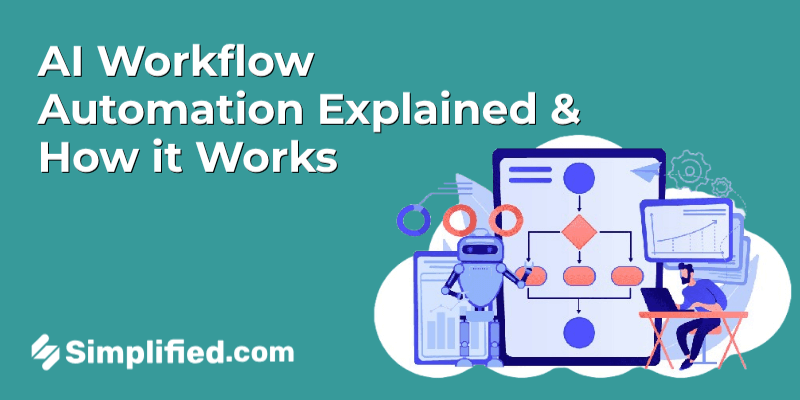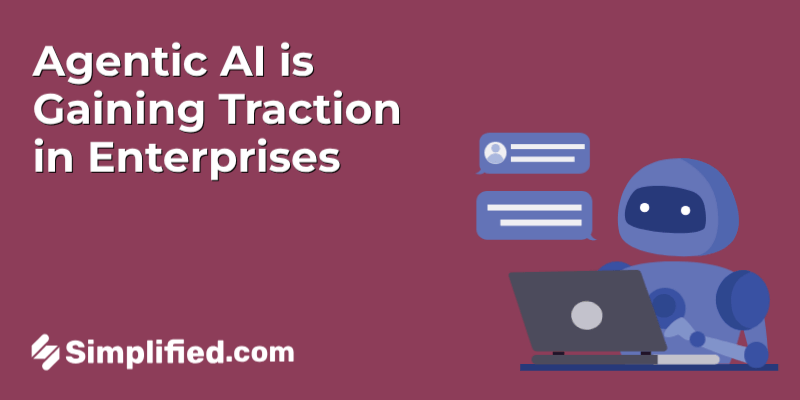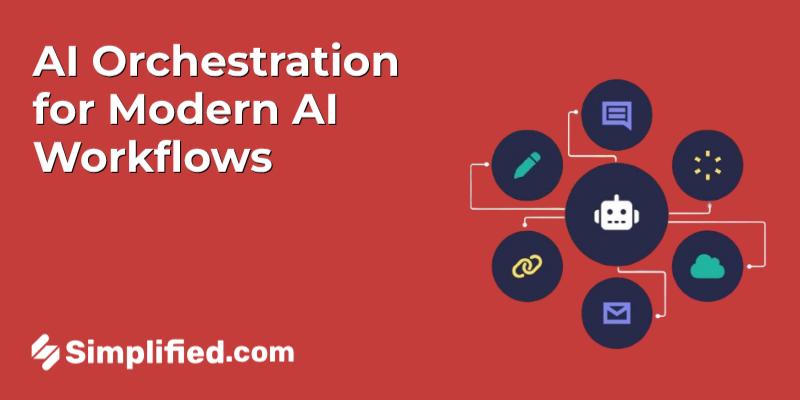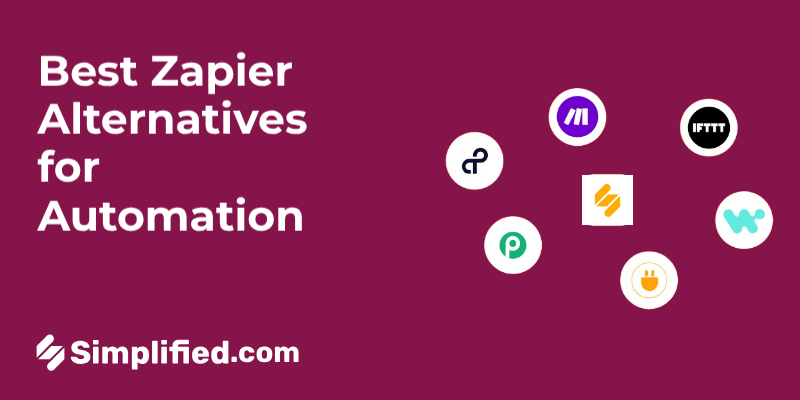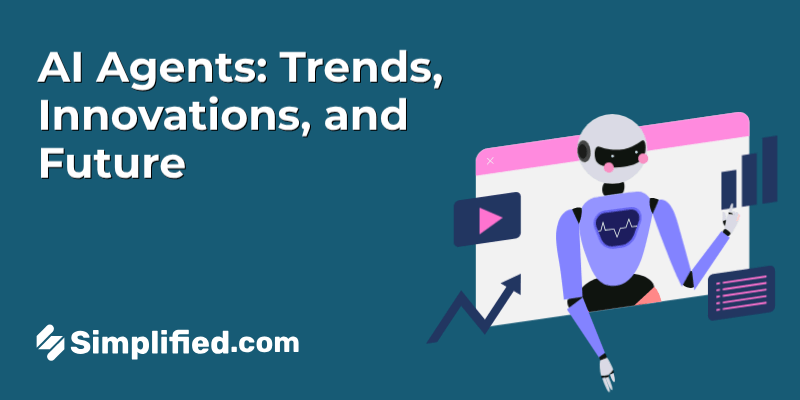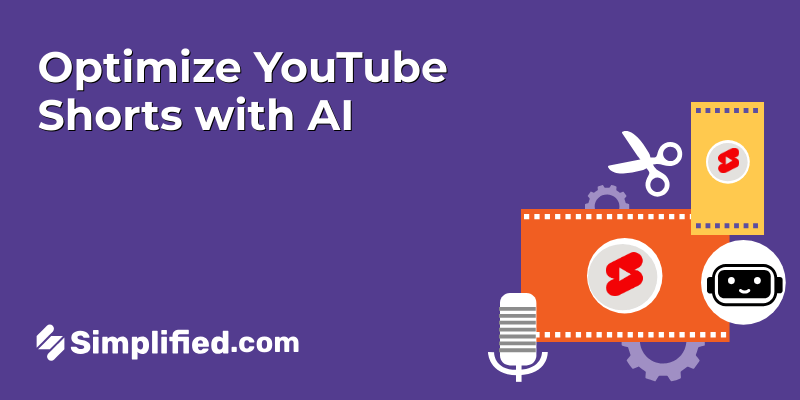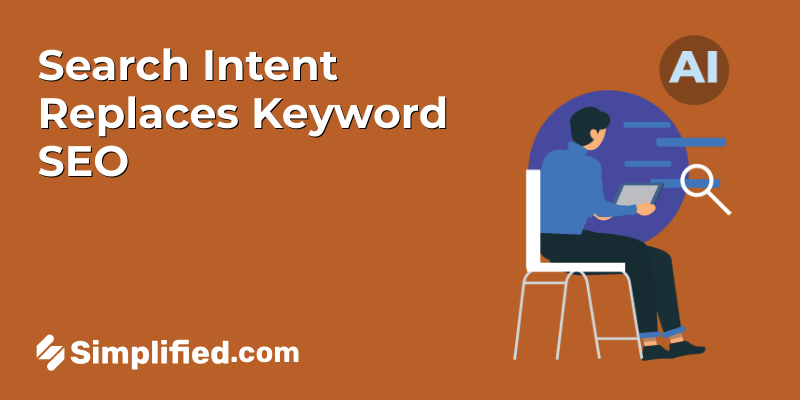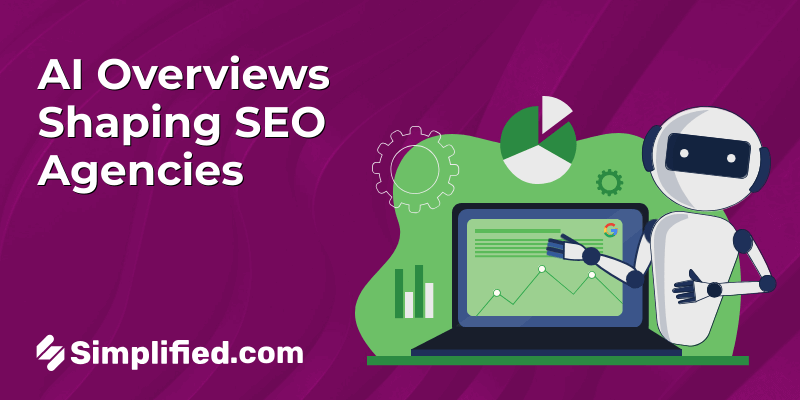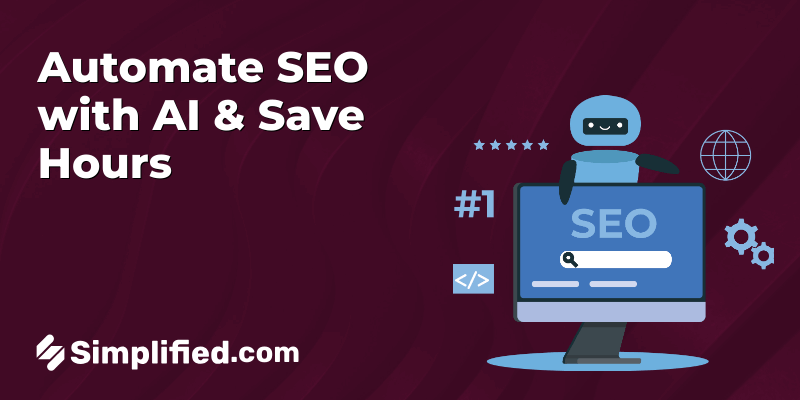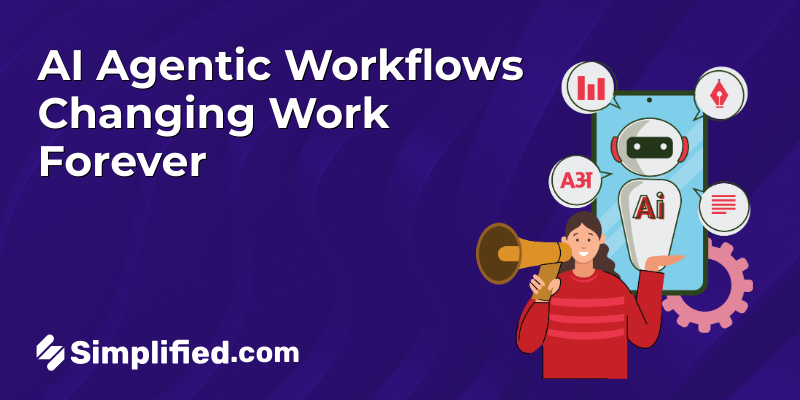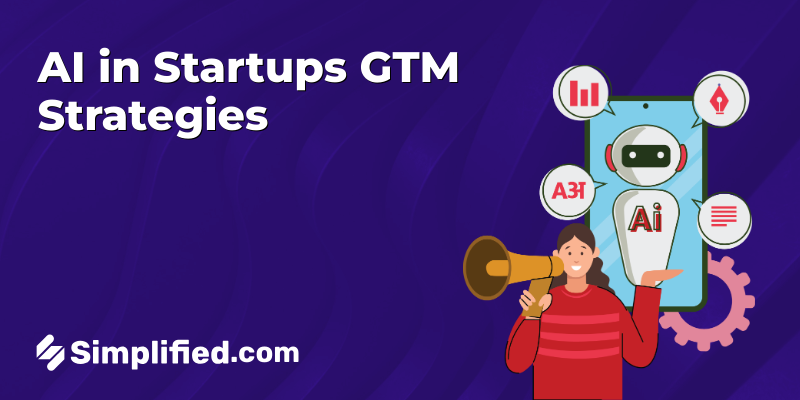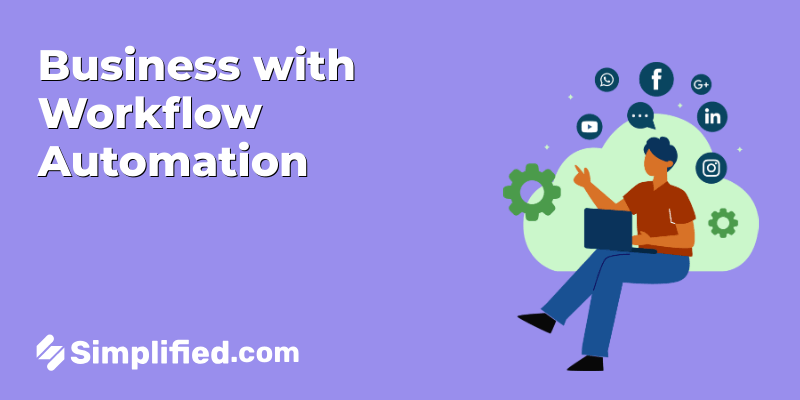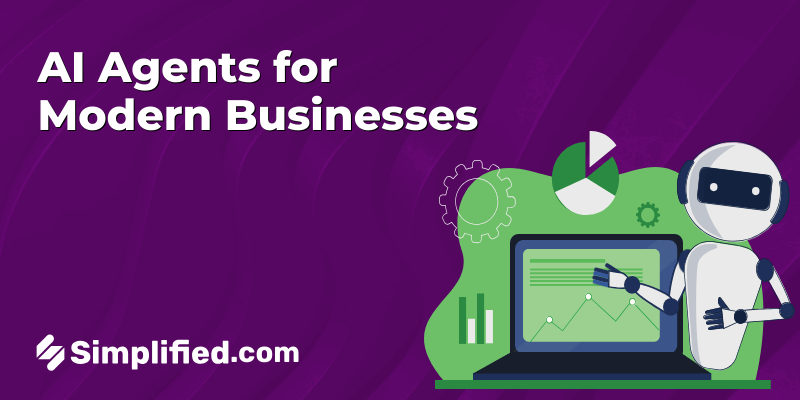
AI agents are rapidly becoming an indispensable part of modern business strategy. Imagine having a virtual assistant that’s capable of learning, predicting trends, and handling tasks, all while you focus on big-picture decisions. These intelligent agents are reshaping industries, enhancing productivity, and driving innovation. Wondering how they can transform your business? Let’s take a closer look at the various types of AI agents and how each one can help you stay ahead of the competition, making your operations smarter and more efficient than ever before.
What Are AI Agents?

AI agents are software systems capable of performing tasks autonomously. These agents are equipped with artificial intelligence algorithms, enabling them to learn, make decisions, and perform activities without human intervention. With the help of large language models (LLMs), AI agents become better at understanding complex language and providing accurate responses. They can handle a wide variety of tasks, from managing customer inquiries to analyzing data to improve business operations.
By using AI agents, businesses can automate repetitive tasks, save time, and improve overall efficiency. These agents can process large amounts of data, recognize patterns, and adapt to new information, allowing companies to make informed decisions quickly.
Bonus: AI Agents are not just LLM prompts
Types of Agents in AI
There are several types of AI agents, each designed to handle different types of tasks. Understanding these types can help businesses choose the most suitable AI agent for their needs:
1. Reactive Agents
These agents focus on responding to immediate environmental cues or inputs. They do not retain prior interactions or learn from past data, acting purely in the moment.
For instance: Customer Support Chatbots that respond to simple queries such as “What are your business hours?” They don’t remember past conversations but respond instantly based on the current inquiry.
2. Proactive Agents
These agents anticipate future scenarios and initiate actions without human prompts. They use predictive data to forecast needs and act accordingly.
For instance: AI Assistants like DelegateFlow.ai, which monitor customer behavior, predict when a lead is likely to convert, and automatically send follow-up emails or alerts to the sales team. These proactive agents make decisions based on patterns they observe, not just current data.
3. Utility-Based Agents
These agents evaluate multiple options and select the one that maximizes the expected benefit based on a utility function. They weigh different factors before making a decision.
For instance: Automated Scheduling Tools that consider the availability of all team members, travel times, and meeting priorities to select the best time for a meeting, optimizing for minimal disruption and maximum convenience.
Bonus: Top Workflow Automation Tools for Business Operations
4. Learning Agents
These agents use data from past experiences to improve their decision-making over time. They learn from ongoing interactions to adapt their behavior, becoming more effective as they gather more information.
For instance: E-commerce Recommendation Systems that suggest products based on previous customer behavior, such as Amazon’s suggestions that evolve as more data about preferences and past purchases is collected, improving their recommendations with time.
5. AI Sales Agents
Specialized in automating various sales tasks, these agents handle lead generation, follow-ups, and customer interactions, optimizing the sales process.
For instance: AI Lead Scoring Systems that analyze customer behavior, such as engagement with emails or website visits, to score leads and prioritize the ones most likely to convert into customers. This helps sales teams focus on high-potential leads rather than manually sorting through all leads.
6. Collaborative Agents
These agents work alongside human teams, assisting in tasks such as decision-making or managing information. They are designed to complement human work rather than replace it.
For instance: Project Management Tools like Trello or Asana, which use AI to automatically update task statuses, assign tasks based on team members’ availability, and send reminders. This allows teams to focus on the creative or strategic aspects of the project, while the AI agent handles the routine, administrative work.
How AI Agents Improve Business Operations
AI agents offer a wide range of benefits to modern businesses, making them crucial tools for various operations. Here’s how they can improve business outcomes:
- Customer Support: AI-powered chatbots and virtual assistants can provide around-the-clock customer support, reducing wait times and improving customer satisfaction. These agents can handle routine inquiries, escalate issues when needed, and provide personalized assistance.
- Sales and Marketing: AI sales agents automate lead management, follow-ups, and personalized outreach. By analyzing customer data, AI agents can help businesses identify high-quality leads, reducing the time sales teams spend on manual tasks and improving conversion rates.
- Data Analysis: AI agents can process and analyze large datasets much faster than humans, providing businesses with actionable insights. This is especially useful in areas like market research, trend analysis, and inventory management.
- Operations Management: From supply chain optimization to scheduling, AI agents can automate various operational tasks. By handling routine work, AI agents free up employees to focus on more strategic roles.
- Recruitment and HR: AI agents assist with talent acquisition by screening resumes, conducting preliminary interviews, and assessing candidates. This speeds up the recruitment process, allowing HR teams to focus on high-level decision-making.
Bonus: Implementing Workflow Automation For Business Expansion
How to Build AI Agents for Your Business
Building an AI agent tailored to your business’s needs can greatly increase productivity. Here’s how to get started:
1. Identify the Problem
The first step in building an AI agent is to define the problem you want to solve. Whether it’s automating customer support or improving sales forecasting, clarity on the problem will help you select the right tools and technology.
2. Choose the Right Platforms
There are several frameworks and platforms available for building AI agents. Tools like DelegateFlow, Microsoft Azure, and IBM Watson provide powerful environments for designing and deploying custom AI solutions. These platforms offer a range of pre-built tools and frameworks that can make the development process more efficient.
3. Gather and Process Data
AI agents learn by analyzing data, so it’s important to collect relevant and high-quality data from your business. Ensure that your data is clean and well-organized, as this will directly impact the performance of the AI agent.
4. Develop and Train the Agent
Using machine learning algorithms, train your AI agent on the collected data. Depending on the complexity of the task, this could involve supervised learning (where the agent learns from labeled data) or unsupervised learning (where the agent identifies patterns on its own).
5. Test and Deploy
After building your AI agent, it’s important to test it in real-world scenarios to ensure it functions as expected. Once tested, deploy the agent and monitor its performance. Continuously gather feedback to make adjustments and improve the system.
Bonus: How AI is Redefining Go-to-Market Strategies for Startups
Best AI Agents for Modern Businesses
Several AI agents stand out for their functionality and impact on business operations. Here are some of the best AI agents available today:
1. DelegateFlow
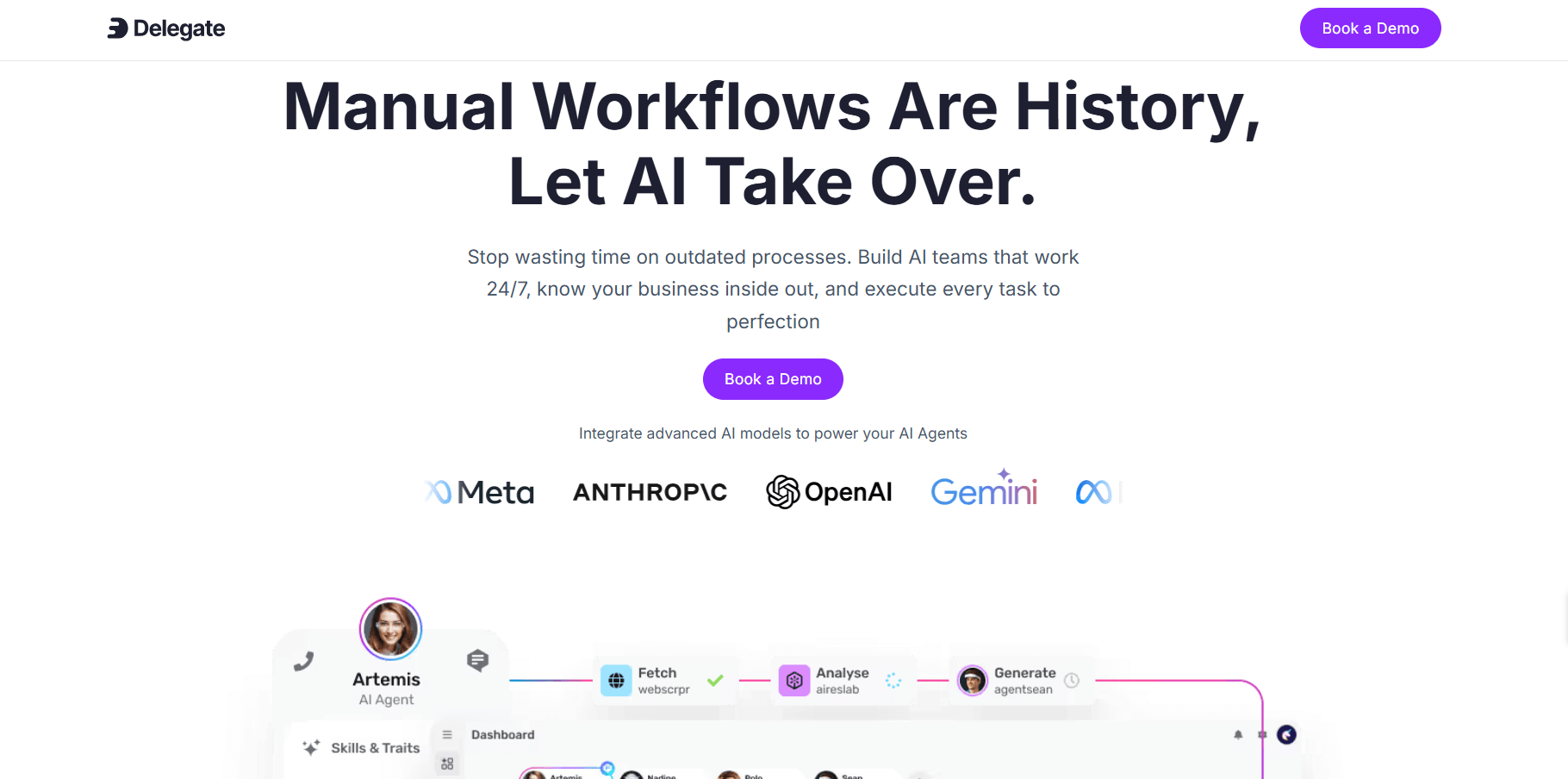
DelegateFlow is a robust platform designed to automate various business functions, including customer service, marketing, project management, and sales. By using AI agents, businesses can optimize their workflows, reduce manual tasks, and strengthen decision-making processes. It integrates easily with popular business applications, helping companies increase productivity across departments.
2. Zendesk AI

Zendesk AI focuses on automating customer support. With smart chatbots and automated ticketing systems, Zendesk AI improves response times and helps businesses deliver better customer service.
3. HubSpot AI Sales Tools
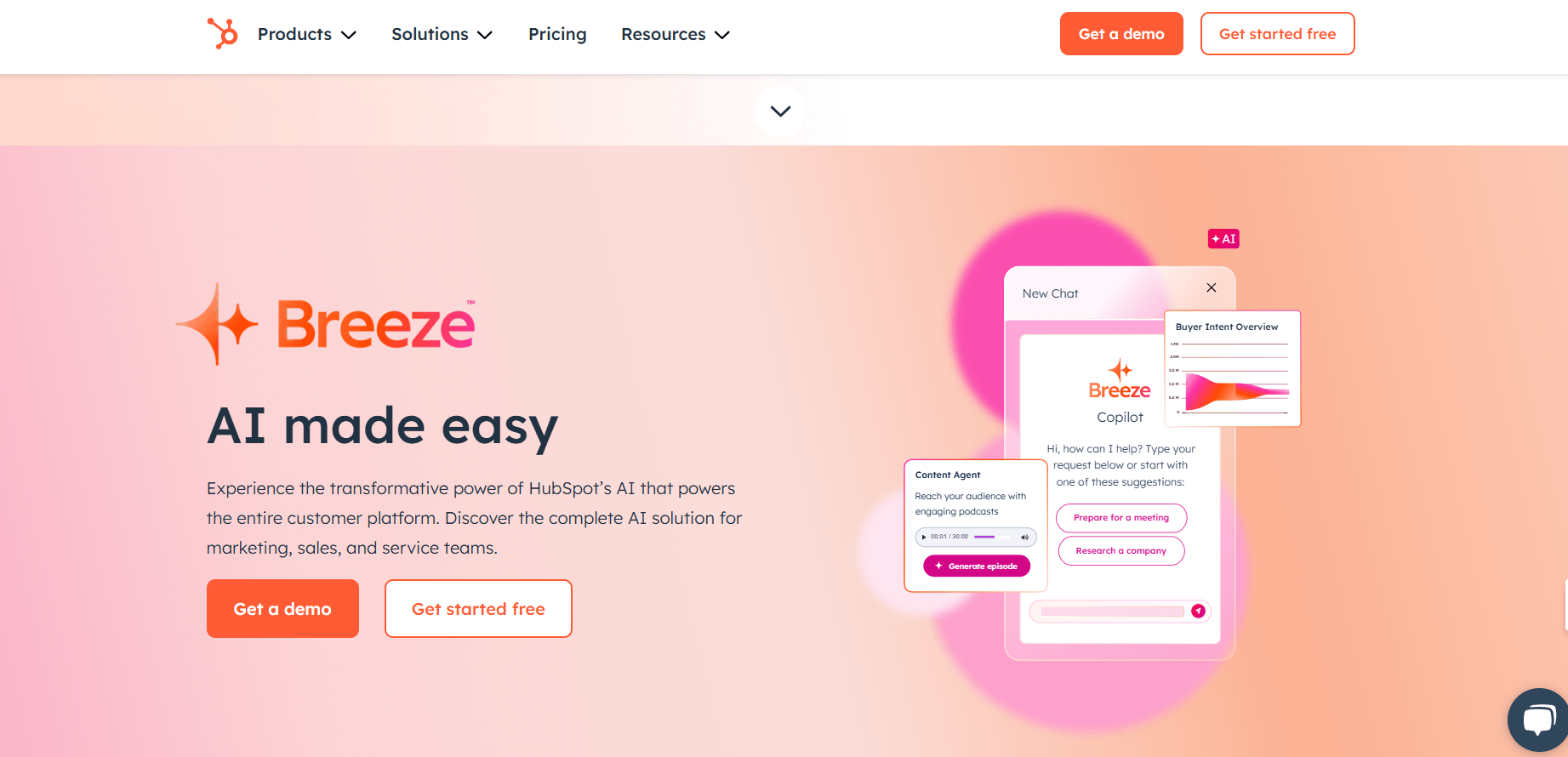
HubSpot’s AI-powered tools are designed to assist sales teams by automating lead management and follow-up processes. These tools track interactions and prioritize leads, enabling sales teams to focus on high-conversion opportunities.
4. Trello AI

Trello AI functionalities enhance project management by automatically updating task statuses, assigning tasks, and sending reminders. This AI agent helps teams stay on track with deadlines and workflows.
Challenges in Implementing AI Agents
Despite the clear benefits, integrating AI agents into business operations comes with certain challenges:
- Integration: AI agents must integrate smoothly with existing systems. Compatibility issues may arise, and additional resources might be required for system adjustments.
- Data Privacy: Since AI agents handle sensitive data, businesses must ensure proper data security measures are in place to protect customer information and comply with regulations.
- Employee Adaptation: Introducing AI agents requires businesses to train employees on new technologies. Clear communication and ongoing support will help ensure a smooth transition.
- Ongoing Maintenance: Like any software, AI agents need regular updates and maintenance to keep them performing at their best.
Bonus: Top Marketing Automation Tools for Every Business Size
The Future of AI Agents in Business Automation
AI agents are expected to play an even larger role in business operations in the future, especially in automation. As AI and machine learning continue to evolve, businesses will see increasingly intelligent and capable agents taking on more complex tasks, automating decision-making processes, and delivering valuable insights with precision.
The integration of AI agents in business automation will likely become a standard across various industries, including finance, healthcare, and retail. From automating administrative tasks to improving customer interactions, AI agents will increasingly be seen as valuable tools that magnify your business operations.
As businesses adopt AI agents, it will be crucial to stay up-to-date with the latest developments in AI technology to ensure they are using the best tools for automation. The future of AI agents holds immense potential, transforming how businesses operate and opening up new avenues for efficiency and growth.
Final Thoughts
AI agents are set to redefine how modern businesses operate by automating routine tasks, improving decision-making, and enhancing overall productivity. Whether you’re looking to improve sales, customer support, or operations, AI agents are an essential tool for any business striving to stay competitive.
By understanding the different types of AI agents and selecting the right tools for your business, you can unlock new opportunities for growth and efficiency. With the right AI solutions in place, your business can stay ahead of the curve in today’s fast-paced digital landscape.

